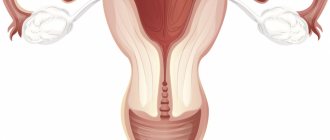For a couple who wants to become parents, planning a pregnancy is no less important than the pregnancy itself.
After all, you need to carefully prepare for conception, monitor your health, and eat rationally. And this applies to both partners. It is generally accepted that only the expectant mother should think and worry about the health of her long-awaited offspring. But not only a woman must “sacrifice” in order to conceive and bear a healthy baby, a man also needs to give up bad habits, change his lifestyle and diet in some way. Vitamins and microelements are especially important in the diet; their consumption should be sufficient to “lay in” the future of a healthy person. Therefore, vitamin complexes for pregnancy planning are needed by both women and men planning to acquire heirs.
Of course, the mother bears a much greater burden in terms of offspring; she will have to bear the child, feed, care for, and raise. But the future father needs to take into account that the child receives a set of genes from both parents. Therefore, a man must assist the woman in everything regarding joint children and not just support his other half, but act in unison with her when preparing for pregnancy. This must be done in order to minimize the health risks of the future joint baby. It is necessary to plan a pregnancy approximately 3-6 months before the expected conception.
What vitamins are needed to get pregnant?
Often, couples do not have problems conceiving; women become pregnant as soon as they stop using contraception. Of course, this is wrong: if you do not prepare for pregnancy, then there is a very high chance of developing fetal pathologies, disturbances in the development of the fetal neural tube, miscarriages, and miscarriage. Vitamins are needed not only by women, but also by men for the proper formation of germ cells and their maturation, and vitamins for men when planning pregnancy should be taken 3 months before the expected conception. This is due to the fact that sperm development takes about three months.
If a couple has problems conceiving, the reason for this is often the inferiority of reproductive cells.
Vitamins for pregnancy provide the parents' bodies with the necessary substances for normal spermatogenesis and folliculogenesis. Their absence often causes problems with sperm maturation in men. Often, in case of infertility, after examination it turns out that the man’s sperm quality is reduced (read how to improve sperm quality in this material - note altravita-ivf.ru), this may be the reason that conception does not occur. When a couple is given vitamin supplements to get pregnant faster, the quality of sperm increases, then the woman becomes pregnant. That is, they nourish the body and contribute to the normal development of sperm and eggs. Your doctor will tell you what to drink to get pregnant faster. So, men need a sufficient amount of zinc and folic acid to improve spermatogenesis. Important microelements for normal spermatogenesis are also selenium and iodine.
Why does a man need vitamins when planning a pregnancy?
It is advisable for all men, and especially those who plan to become a father, to know some facts about spermatogenesis, this will allow them to approach future fatherhood more responsibly. The development of sperm (male reproductive cells) is a complex physiological process that occurs under the control of hormones and depends on many factors, both internal and external.
The main hormone regulating spermatogenesis is testosterone. Pituitary gonadotropes (gonadotropic hormones produced by the pituitary gland) are responsible for the synthesis of testosterone. The full cycle of spermatogenesis, that is, the formation and development of sperm in the testes, occurs in approximately 75 days. That is why the period of 3 months during which sperm are renewed is considered the minimum for preparing for pregnancy. Naturally, the younger and more active a man’s sperm are, the more likely conception will occur, and the healthier the fetus will develop. It's no secret that apparently healthy, athletic men have problems with spermatogenesis.
So how can vitamins help a man?
- It is impossible, even with proper nutrition and a balanced diet, to “guess” whether a sufficient amount of essential substances and microelements came from food, or what element is missing. Therefore, you need to take ready-made vitamin complexes as prescribed by your doctor, including physically healthy young men.
- When consuming vitamins, not only the formation and maturation of sperm improves, but the sperm “increase their chances” of fertilizing an egg. Vitamins also have a beneficial effect on all organs and systems of the body.
- If the expectant father takes vitamins for pregnancy planning in preparation for conception, this will provide great moral support to the expectant mother. The partner will demonstrate to the woman that he and she are ready for significant changes in their life together.
Vitamins and pregnancy
One of the most common questions that pregnant women ask their doctor is what vitamins should they take during pregnancy? Let’s say right away whether expectant mothers need to take pharmaceutical vitamins or not - there is no definite answer to this question. Some doctors believe that the necessary nutrients should be obtained from natural products. Others are proponents of taking pharmaceutical multivitamins. The only thing we can say for sure is that vitamins and microelements must be supplied to the body of a pregnant woman. We'll tell you which of them are most important for the expectant mother.
Folic acid
Other names for this vitamin are vitamin B9 or Bc. This vitamin is necessary for cell division and reproduction, so it is especially important in the first trimester of pregnancy, when all the organs and systems of the child are formed. Folic acid plays an important role in the synthesis of hemoglobin, and with its deficiency, anemia can develop. Folic acid also helps reduce the likelihood of spinal defects in a child and takes care of the proper formation of his psyche and intellect. It is better to start taking folic acid three months before the planned conception, since a small supply of this vitamin will only be beneficial for both the expectant mother and the baby. If pregnancy is unplanned, then folic acid must be taken as soon as the woman finds out about her situation. On average, the dosage of this vitamin ranges from 0.4 to 0.8 mg per day.
Calcium
An expectant mother needs about 1200–1400 mg of calcium daily, while an ordinary woman needs 800–1000 mg of this trace element. Why? During pregnancy, the amount of calcium in the body of the expectant mother decreases significantly, since it is also spent on the growth and development of the child. Especially a lot of calcium is needed in the third trimester, when calcification of the baby’s skeleton occurs. But calcium is needed not only for the growth of a child’s bones and teeth - with its help, his nervous system, his heart, muscles, skin tissue, eyes, ears, hair and nails are formed. A pregnant woman needs calcium for proper kidney function, prevention of muscle pain, constipation, osteoporosis, caries and toxicosis. In addition, this microelement protects the expectant mother from stress and nervous overload.
Vitamin E
This vitamin is involved in the process of tissue respiration, it helps oxygen penetrate every cell of the body. At the same time, vitamin E is an excellent antioxidant: it protects cells from the formation of free radicals, which can cause various diseases. This protective function is especially important at the stage of embryo formation. In addition, vitamin E helps normalize the body's hormonal balance. In the early stages, it participates in the formation of the placenta and also protects against miscarriage. The dose of vitamin E during pregnancy is 15 mg.
Vitamin E is found in vegetable oils; no less than this vitamin is found in lettuce, tomatoes, rose hips, parsley, spinach and peas. Some vitamin E is found in meat, eggs and milk.
Magnesium
Magnesium is involved in all metabolic processes, helps cope with stress, normalizes the functioning of the cardiovascular system and blood pressure, and keeps blood vessels in good shape. Due to a lack of magnesium in the body, muscle cramps (usually the calf muscles) may appear. And since the uterus is also a muscular organ, with a lack of magnesium during pregnancy during gestation, the excitability of the myometrium increases, which leads to active uterine contractions. Therefore, for hypertension and the threat of miscarriage, magnesium is often prescribed.
Magnesium is rich in whole grains and whole grain bread, figs, almonds, seeds, dark green vegetables and bananas.
iodine
Iodine is usually prescribed to pregnant women in the first trimester. Until 16 weeks of pregnancy, the development of the child and the formation of all its organs and systems is “under the protection” of the mother’s thyroid gland. And if a woman has little iodine, this means that some system or organ of the baby may be damaged. And even when the child’s own thyroid gland is formed and starts working, it will still only be able to take iodine from the mother’s body. Its daily dose is 250 mg per day.
Iodine is most easily obtained from seafood and sea or iodized salt. A lot of iodine is found in sea fish, seaweed, squid, persimmon, feijoa, dates, dried figs, dairy products and meat. However, iodine is destroyed by temperature, which means that after heat treatment the amount of iodine in products decreases sharply.
Iron
Iron is necessary primarily to prevent anemia. After all, it is part of hemoglobin, which carries oxygen throughout the body of the mother and child. In addition, iron is involved in protein synthesis, which is involved in the formation of muscle tissue. And a lack of iron can lead to increased uterine tone. The average daily dosage of iron is 30–60 mg. In some cases, if a woman's iron reserves were initially low, the dosage may be higher.
Iron is found in meat, especially in veal, turkey, hare, pork and beef. There is iron in plant foods, but from there it is absorbed much less well. Iron is best absorbed when taken together with vitamin C.
If a pregnant woman eats a healthy and varied diet, eats a lot of fruits and vegetables, then she may not need an additional complex of vitamins for pregnant women. It may be necessary to take some vitamins separately, but this should be determined by a doctor. If before pregnancy a woman had signs of vitamin deficiency, she eats incorrectly or poorly, then she cannot do without multivitamins.
Insertion
Vitamin B9 (folic acid) is found in animal liver, spinach, asparagus, lentils, Brussels sprouts, beans and wholemeal flour. However, it is absorbed very poorly from food, no more than 50%. That is why it is prescribed to almost all pregnant women
Our body will not be able to absorb more than 500 mg of calcium at one time. Therefore, you should not try to get the entire daily requirement of this microelement in one meal. Try to eat foods containing calcium in small portions several times a day
To increase the concentration of magnesium in tissues, vitamin B6 (pyridoxine) is needed, which facilitates its absorption and acts as a conductor of magnesium into the cell. Therefore, magnesium and vitamin B6 are often prescribed together.
The role of some vitamins
Most of all, the future couple needs the following vitamins:
- folic acid;
- vitamin E;
- vitamin C;
- zinc;
- selenium;
- L-carnitine.
Folic acid (B9) is necessary for the production of normal motile sperm capable of fertilizing an egg. Vitamin B9 is responsible for the condition of all newly formed cells in the body, so with its deficiency one can only dream of healthy spermatogenesis. For healthy men, the daily intake is 400 mcg. However, for certain diseases (oncology, epilepsy, infectious diseases) this amount is not enough. Schemes and dosages are selected by the doctor in each individual case. It is important to know that the body does not produce folic acid, so its reserves can only be replenished by taking medications and eating foods rich in vitamin B9. These are mainly leaves of plants: black currant, plantain, rose hips, mint, dandelion. Also rich in folic acid are cucumbers, beans, bananas, beets, cereals, and raspberries.
Vitamin E plays the role of an antioxidant and prevents damage to germ cells. Thanks to it, the sensitivity of sperm to negative environmental factors is reduced. Tocopherol acetate (“tocopherol” from Greek - “bear offspring”) increases immunity, strengthens blood vessels, prevents blood clots, improves the functions of some endocrine glands, including the pituitary gland, and promotes sperm motility, which is the most important factor for conception. Inactive sperm are often the reason that a couple cannot have a child. Foods rich in vitamin E: eggs, vegetable oils (olive, corn, peanut, soybean), milk, apples, pears, legumes, liver, rose hips and raspberries. For successful conception, you need to consume 400IU of alpha-tocopherol.
Vitamin C plays a key role in the synthesis of male sex hormones and regulates the sensitivity of receptors to them. Ascorbic acid increases the body's resistance to pathogenic pathogens, neutralizes toxins and free radicals, participates in the production of L-carnitine, collagen, vitamin E, and has anti-allergic and anti-inflammatory effects. When taking certain medications (quinine, glucocorticosteroids, aspirin), vitamin C reserves in the body are depleted. If you are taking any medications in preparation for pregnancy, you should definitely notify your doctor. Ascorbic acid is found in almost all fresh fruits, vegetables, and herbs. There is especially a lot of it in parsley, black currants, and rose hips. It should be noted that vitamin C largely loses its medicinal properties during heat treatment. Daily requirement – 60 mg. But vitamin intake for men when planning pregnancy is up to 1500 mg daily.
Zinc, like selenium, supports the sexual activity of men, maintains an erection, eliminates sexual disorders, normalizes libido, and is involved in metabolism. It is in sperm that the highest concentration of zinc in the body is noted, not counting skeletal muscles. With a lack of zinc, spermatogenesis is impaired. Taking medications containing zinc and selenium improves sperm motility, increases their number, increases testosterone levels, and normalizes prostate function. The microelement is contained in liver, beef, fish products, and carrots. Daily requirement – 15 mg. Selenium is found in bran, tomatoes, garlic, herring, and beef liver. Carbonated drinks and sweets interfere with the absorption of selenium. The daily requirement is 65 mcg.
L-carnitine or vitamin B11 is a leader in the treatment of infertility in men. Thanks to it, the concentration of sperm in the seminal fluid increases, motility increases, and the quality of the ejaculate and its quantity improves. Vitamin B11 promotes the breakdown of fats. The element is contained in beef, but it is impossible to replenish the supply of L-carnitine with the help of food alone; you need to take medications.
After pregnancy, you should take complexes containing calcium and iron. These elements are essential for the growth and development of the baby, as well as for maintaining the health of the mother.
Vitamin-rich foods
Femibion Natalker I tablets No. 30
Product description
Femibion Natalker I.
Release form, packaging and product composition
Film-coated tablets 1 tab. % of the daily requirement of women of reproductive age vitamin C (calcium ascorbate) 110 mg 120% vitamin PP (nicotinamide) 15 mg 75% vitamin E (α-tocopherol acetate) 13 mg 87% vitamin B5 (pantothenic acid (in the form of calcium pantothenate)) 6 mg 120% vitamin B6 (pyridoxine hydrochloride) 1.9 mg 95% vitamin B2 (riboflavin) 1.6 mg 89% vitamin B1 (thiamine nitrate) 1.2 mg 80% folate 400 mcg 100% folic acid 200 mcg L-methylfolate* (equivalent to 200 mcg folic acid) 208 mcg iodine (potassium iodide) 150 mcg 100% biotin 60 mcg 120% vitamin B12 (cyanocobalamin) 3.5 mcg 117% Excipients: microcrystalline cellulose (filler), hydroxypropylcellulose (filler), maltodextrin, hydroxypropyl methylcellulose (glazing agent), starch corn, hydroxypropylcellulose (glazing agent), titanium dioxide (dye), glycerol (acidity regulator), magnesium salts of fatty acids, iron oxide (dye). Energy value 1 tablet. - 1 kcal (carbohydrates - 0.4 g). Packaging: 1 blister contains 30 film-coated tablets.
Properties
Dietary supplement to food, an additional source of folic acid, vitamins B1, B2, B6, B12, C, E, biotin, nicotinamide, pantothenic acid and iodine. Femibion® Natalker I contains folic acid and Metafolin® to provide the necessary level of folate in the body of a pregnant woman, even in those women whose body cannot fully convert and then absorb folic acid. Folic acid is a vital vitamin for expectant and nursing mothers. Studies have shown the positive effect of folic acid (a synthetic form of folate) and natural dietary folate on the course of pregnancy and the normal development of the child (both intrauterine and after birth). As a rule, an insufficient amount of folate comes from food, which does not meet the daily requirement of a woman of childbearing age, and in pregnant women the need for folate is increased. Therefore, additional intake of folic acid during this period is very important. In the body, folic acid is converted into a biologically active form. Medical evidence shows that every second woman's body cannot completely convert folic acid into its active form. Metafolin® is an easily digestible, biologically active form of folate. Thanks to this, Metafolin® is more accessible to the body and is better absorbed than folic acid. For the normal development of a child, in addition to folic acid, vitamins and iodine are necessary. Therefore, it is very important to meet the increased need for these nutrients during pregnancy. Femibion® Natalker I contains 9 vital vitamins and iodine. Vitamin B1 is necessary for carbohydrate metabolism and energy supply. Vitamin B2 is necessary for energy metabolism. Vitamin B6 is necessary for protein metabolism. Vitamin B12 is necessary for hematopoiesis and a healthy nervous system. Vitamin C is involved in the formation of connective tissue. In addition, it improves the body's protective properties and promotes the absorption of iron. Vitamin E protects body cells from free radicals. Biotin is important for healthy skin. Calcium pantothenate is involved in the metabolic process. Nicotinamide supports the protective function of the skin. Iodine is a vital trace element necessary for the growth and functioning of the thyroid gland.
Application area
For women planning pregnancy and pregnant women up to the end of the 12th week. Open list of ICD-10 codes
Recommendations for use
Femibion® Natalker I is recommended to be taken from the moment of pregnancy planning. Women planning a pregnancy and pregnant women until the end of the 12th week are recommended to take 1 tablet per day with water.
Contraindications
Individual intolerance to components.
special instructions
Do not exceed the recommended dose. The dietary supplement Femibion® Natalker I should not be used as a substitute for a complete, balanced diet. It is recommended to consult a doctor before use.
Storage conditions
Femibion® Natalker I should be stored in a dry place, out of reach of children, at a temperature not exceeding 25°C.
Best before date
Shelf life: 24 months.
Buy Femibion Natalker I tablets No. 30 in a pharmacy
Price for Femibion Natalker I tablets No. 30
Instructions for use for Femibion Natalker I tablets No. 30
How long should I take it?
It is best to take vitamins for pregnancy planning in a continuous course. The duration of treatment is determined individually. For healthy men and women, 3-4 months is enough. During this time, the body will have time to replenish the deficiency of missing substances, get stronger, and tune in to a new type of work. If previous pregnancies were accompanied by complications, future parents experience excessive psycho-emotional stress, there are chronic diseases of internal organs, there is contact with harmful factors at work and at home, taking vitamin complexes should be started six months before the planned conception.
You have questions?
You can contact the leading specialists of the AltraVita clinic
Contraindications for use
Men need to take vitamins to plan pregnancy in the following cases:
- A deficiency of any element identified during the examination.
- Poor sperm count.
- Recovery after a long illness.
- Early ejaculation.
- Erectile weakness, other erectile dysfunction.
The range of contraindications to the use of vitamin complexes is very narrow. The main one is hypersensitivity to the active substance or auxiliary components of the drug. In addition, it is undesirable to take vitamins if you have gastritis, peptic ulcers or enteritis. You should not take vitamins if you have oncological malignant processes, tuberculosis (active stage), renal or liver failure. These diseases impair the absorption of nutrients, and the prescribed treatment will not bring the desired effect.
Which ones to drink?
What vitamins should a woman or man take to get pregnant? It all depends on the state of her health. For example, anemia requires a higher content of iron and B vitamins in food. But taking folic acid is mandatory for all pregnant women. It prevents improper formation of the neural tube of the embryo, and often its deficiency becomes the cause of early miscarriages and fetal pathologies if the woman did not expect conception, did not prepare for pregnancy and did not take any medications.
Femibion 1 is available in tablets intended for oral administration. One pack of the drug contains 30 tablets. They contain 10 vitamins that are most important for women planning pregnancy or already pregnant. It is the lack of these vitamins that expectant mothers most often experience. The most important among them are:
Folic acid and metafolin (the most easily absorbed form of folic acid). Scientists often call these vitamins the “happiness vitamin” or the “good mood vitamin.” It is impossible to overestimate their effect on the body, especially on a pregnant woman: it both normalizes the emotional state and has a beneficial effect on almost all internal systems - cardiovascular, immune, digestive, and nervous. A sufficient amount of folic acid in the body of the expectant mother is the key to the normal course of pregnancy and the health of the baby.
Vitamin E, also called tocopherol, is deservedly called “baby bearer” (this is how the word “tocopherol” is translated from Greek). Thanks to vitamin E, a woman’s body maintains a balanced hormonal balance. And this is extremely important both at the stage of pregnancy planning (promotes the maturation of eggs and the onset of ovulation) and during pregnancy itself (necessary for the normal development of the embryo and the successful fixation of the fertilized egg in the uterus).
Vitamin C is rightfully considered the best helper in strengthening the immune system. Being a powerful antioxidant, it effectively prevents the development of infections in the body, resists allergic processes, fills internal organs with glycogen - in a word, it guards the health of a pregnant woman.
B vitamins (B1, B2, B5, B6, B12). They participate in the body’s metabolic processes, metabolism, red blood cell production, tissue regeneration and, very importantly, the development of the fetus (especially the liver and heart of the unborn child).
In addition, the drug contains other useful vitamins: iodine (normalizes the functioning of the thyroid gland), nicotinamide (improves the functioning of the digestive system) and biotin (regulates sugar levels, normalizes the functioning of the nervous system). This “set” of vital elements makes Femibion 1 indispensable during pregnancy.
Femibion 1 application: when to start taking the drug?
Starting to take Femibion 1 when planning a pregnancy is the right decision for the expectant mother! It will help prepare a woman’s body for the upcoming changes, accumulate a sufficient amount of useful elements for a successful pregnancy and normal development of the fetus. Tests of the drug have shown that it does not cause side effects and is therefore available without a prescription.
How to improve sperm quality
First of all, you need to review your diet. The expectant father needs to refrain from consuming fatty, difficult-to-digest foods. Eliminate preservatives, flavor enhancers and other additives - they all negatively affect the quality of sperm. Introduce more fruits, vegetables, berries, seafood, lean meat, and greens into your diet. Men who are overweight should bring their weight back to normal, since fat tissue produces the female sex hormone, estrogen.
In addition to nutrition, you need to pay attention to the following points:
- Stop smoking and drinking alcohol.
- Visit environmentally friendly areas more.
- Try to have less contact with chemicals.
- Take care of your mental health, avoid stress, learn to relax.
- Before you plan to conceive, do not visit baths or saunas - any overheating impairs the functioning of the reproductive organs.
- Remember that testicular temperature is normally lower than body temperature. Therefore, no overheating, tight underwear, synthetics, tight jeans, or too warm underwear.
- When working with a laptop, do not put it on your knees, and do not keep your mobile phone in your trouser pocket.
A man's working conditions also affect his ability to conceive. At risk are: metallurgists, painters, car mechanics, and builders. You need to be more careful when working with pesticides in agriculture, with paints and varnishes in the furniture industry, and when working with smoking stoves.
Preparing for pregnancy with infectious pathology of the female reproductive system
The introduction of modern technologies into clinical practice has made it possible to expand research and show that the negative impact of environmental factors on the microflora of the macroorganism leads to a variety of pathologies of both inflammatory and non-inflammatory origin. Despite significant advances made in the diagnosis, treatment and prevention of sexually transmitted infections, their frequency does not have a clear downward trend. The latter is also associated with the increase in immunodeficiency conditions against the backdrop of deteriorating environmental conditions, poor nutrition, frequent stress, a pharmacological boom with the uncontrolled use of drugs, primarily antibiotics, etc. Most often, sexually transmitted infections are caused by several pathogenic factors - viruses, microbes, fungi , protozoa, which cause diseases similar in clinical course, but different in pathogenesis and treatment methods.
Participation in the formation of inflammatory diseases of the pelvic organs, accompanied not only by vaginal dysbiosis, but also by similar changes in the gastrointestinal tract and urinary system; psycho-emotional disorders; the formation of immuno- and interferon-deficient states - this is not a complete list of problems characteristic of patients with urogenital infections. These features are at the same time a pre-gravid background, which is not able to ensure the development of adequate compensatory and adaptive reactions necessary for the gestational process in the majority of these patients.
However, works devoted to the issues of preparing women with bacterial and/or viral infections for pregnancy are extremely few in number and are usually aimed at correcting individual parts of the pathological condition.
Based on the above, the most important and integral stage is the correct pre-conception preparation of women. Therefore, measures to combat infection must begin before pregnancy.
Stages of infection control measures
1. Detection of the following diseases in women:
- chronic inflammatory diseases of the appendages and uterus, ectopia of the cervix, frequent recurrent colpitis;
- developmental anomalies and chronic inflammatory diseases of the urinary organs, dysuric disorders of unknown etiology;
- sexually transmitted diseases (herpes, cytomegalovirus, chlamydia, mycoplasmosis, ureaplasmosis, candidiasis, etc.);
- chronic extragenital foci of infection with frequent relapses;
- tendency to frequent acute respiratory viral infections;
- reproductive dysfunction (infertility, ovarian dysfunction, spontaneous miscarriages, non-developing pregnancies);
- complicated course of previous pregnancies, childbirth, postpartum period (chronic placental insufficiency, chronic hypoxia and/or intrauterine growth retardation, premature birth, antenatal fetal death, anomalies of attachment and separation of placenta, purulent-inflammatory diseases of puerperia, etc.);
- adverse perinatal outcomes (intrauterine or neonatal infection, malnutrition or malformations of the newborn, disruption of the processes of early neonatal adaptation and/or subsequent physical and neuropsychic development of the child).
2. A thorough clinical and laboratory examination of women at risk to verify genital or extragenital infection, regardless of the level of damage to the reproductive system, using at least two modern laboratory diagnostic methods, a study of immune and interferon status, etc. 3.
Conducting complex treatment, which should include both etiotropic types of therapy (complex of antibacterial or antiviral treatment), and treatment of concomitant diseases.
4. Planning and preparation for pregnancy.
When a herpes viral infection is detected, it is treated with subsequent prevention of relapses.
For genital herpetic infection, regardless of the level of damage to the reproductive system, both basic (antiviral) therapy and treatment of concomitant diseases are indicated.
Basic types of treatment
The most modern and effective antiviral drug is valacyclovir. Valacyclovir is a prodrug, the L-valine ester of acyclovir. After absorption into the blood, valacyclovir is almost completely converted to acyclovir under the influence of the liver enzyme valacyclovir hydrolase.
a) The resulting acyclovir penetrates into cells affected by the virus, where, under the influence of the viral enzyme thymidine kinase, it is converted into monophosphate, then into diphosphate and active triphosphate. Acyclovir triphosphate inhibits DNA polymerase and thereby disrupts DNA replication of the herpes simplex virus. Consequently, the high selectivity of valacyclovir for tissues affected by the virus is explained by the fact that the first step of the phosphorylation reaction chain is mediated by an enzyme produced by the virus itself. Valaciclovir is prescribed 0.5 g 2-3 times a day for 5-10 days. The duration and dose of the drug are selected individually, taking into account the form and severity of the viral disease.
b) Against the background of blockade of virus replication - stimulation of nonspecific resistance of the body, depending on the indicators of the immune and interferon status of patients (immunoglobulin preparations, interferon inducers, enzyme therapy, etc.).
c) Simultaneous or sequential use of specific antiherpetic immunoglobulin 3.0 ml intramuscularly once every 3–5 days, for a course of 5 injections.
d) Stimulation of the specific resistance of the body (subject to an increase in the inter-relapse period by 1.5–2 times) with a herpetic vaccine 0.25 ml intradermally into the arm 1 time in 3 days (5 injections in total), after which a break in treatment for 2 weeks and then another 5 injections of 0.25 ml once every 7 days. Revaccination course - after 6 months.
e) Local use of specific ointments (Zovirax, alpizarin, megosin, bonafton).
When diagnosing cytomegalovirus infection, etiotropic antiviral therapy is carried out. There are no clear recommendations for the prevention and treatment of CMV infection. An ideal antiviral drug should have high clinical efficacy, selectivity towards the virus, complete safety for the human body, and viruscidal effect. Due to the current lack of drugs that would fully meet the above requirements in relation to CMV, the prevention and treatment of this infection presents certain difficulties. Correction of immunity indicators and interferon status is mandatory.
For CMV infection, it is recommended to carry out a course of passive immunization with anti-cytomegalovirus immunoglobulin, 3 ml intramuscularly once every 3 days, for a course of 5 injections. More effective is normal human immunoglobulin 0.25 g/kg every other day intravenously, 3 injections per course. Immunomodulators (T-activin, cycloferon, immunofan) can be prescribed; the criterion for their effectiveness is the positive dynamics of cellular immunity indicators. Cytotect is also used (in the form of a 10% solution of immunoglobulin with a high content of anti-CMV IgG) intravenously at a dose of 2 ml/kg every 2 days up to 8–10 times under the control of serological parameters.
The use of interferons is promising - viferon 0.5–1 million IU 2 times a day in rectal suppositories for 15–20 days. It is advisable to include systemic enzyme therapy in the prevention and treatment of CMV infection (Wobenzym 5 tablets 3 times a day or Phlogenzym 2-3 tablets 3 times a day 30 minutes before meals for 1-1.5 months). In addition to treating herpes viral infection, additional therapy is indicated. Treatment of a latent chronic inflammatory process in the endometrium (viral-bacterial etiology) should be carried out against the background of basic therapy and be etiotropic and pathogenetically substantiated. Considering the prevalence of anaerobic-aerobic associations, as well as myco-, ureaplasma and chlamydial infections, the use of broad-spectrum antibiotics is indicated.
If urogenital chlamydia, mycoplasmosis and ureaplasmosis are detected, the following is prescribed: spiramycin 1 tablet (3 million IU) 3 times a day for 5–7 days; josamycin 500 mg 3 times a day for 5–7 days; azithromycin 1 capsule (250 mg) 1 time per day for 6 days.
It is advisable to combine etiotropic therapy for infectious pathologies of the reproductive system with the use of antioxidants - ascorbic acid (vitamin C) 50 mg and vitamin E 100 mg 3 times a day. It is also possible to use efferent treatment methods (plasmapheresis, endovascular laser irradiation of blood).
Particular attention should be paid to restoring the microecology of the genital tract, since complications of the gestational period and childbirth associated with various disorders of the vaginal microcenosis include the threat of miscarriage, spontaneous miscarriages, premature birth, chorioamnionitis, untimely rupture of amniotic fluid, the birth of children with low body weight, chronic hypoxia and/or signs of intrauterine infection, in the postpartum period the occurrence of wound infection of the birth canal, endometritis.
Violation of vaginal microcenosis is most often associated with bacterial vaginosis and/or candidiasis infection. According to the literature, 75% of women of reproductive age have at least one episode of vaginal candidiasis. Currently, 196 species of fungi of the genus Candida are known. Of these, more than 27 species are isolated from human mucous membranes. According to summary data, Candida albicans is found in the intestines of 20–50% of healthy people, on the oral mucosa in 20–60%, and in the vagina in 10–17% of non-pregnant women.
Vaginal candidiasis in pregnant women occurs on average in 30–40% of cases. Before childbirth, this figure can reach 44.4%. The goal of treatment for bacterial vaginosis and vaginal candidiasis is to restore the normal microflora of the vagina and inhibit the growth of microorganisms that are unusual for this microcenosis. There are many drugs and treatment regimens for vaginal dysbiosis. However, there is no optimal drug that would meet all the requirements and be 100% effective.
For bacterial vaginosis, the following drugs are used: dalacin vaginal cream (2% vaginal cream containing 100 mg of clindamycin phosphate) once a day for 3 days or tantum rose - vaginal douche - 2 times a day for 7-10 days.
Drugs for the treatment of vaginal candidiasis are divided into the following groups:
1. Antibiotics (nystatin, levorin, natamycin, amphotericin B).
2. Imidazoles (clotrimazole, ketoconazole, miconazole).
3. Triazoles (fluconazole (Diflucan, Fungolon), itraconazole).
4. Combined drugs (Polygynax, Klion D, Pimafukort, Macmiror complex).
5. Other drugs (dafnedzhin, polyvinylpyrrolidone iodate, griseofulvin, flucytosine, nitrofungin).
In the acute form of vaginal candidiasis, antimycotics are prescribed 1 vaginal suppository (tablet) once a night for 6 days, and in case of relapse of a chronic infection - in the same dosage for 9 days. At the same time, sexual rest is observed for 2–3 weeks, and the spouse is treated (local 1% Canison ointment or other antifungal agent).
The evolution of new antimycotics is moving towards the development of shorter courses of treatment. In this regard, a new era in the treatment of mycoses began with the introduction into clinical practice of once or twice administered oral antifungal drugs, the active substance of which is fluconazole. One of these drugs is Fungolon, which is one of the most effective and highly safe antifungal drugs due to its metabolic stability, rapid absorption due to good solubility, and minimal effect on enzymatic processes in the liver.
Fungolon belongs to the class of triazole compounds that inhibit the biosynthesis of fungal membrane sterols, disrupt the synthesis of ergosterol, as a result of which fungal growth is inhibited. It has been established that the drug is active against mycoses caused by opportunistic fungi, including the genus Candida. At the same time, fungolon selectively acts on the fungal cell and, unlike other antimycotic drugs, does not affect the metabolism of hormones, does not change the concentration of testosterone in the blood in men and the content of steroids in women, which eliminates the development of adverse reactions.
The drug is taken once at a dose of 100–150 mg. If there is no effect, a repeat dose of 100–150 mg is prescribed after 5 days. It should be especially emphasized that, unlike other antibiotics, a single oral dose of fungolon can achieve a therapeutic effect in 90–100% of cases.
Sanitation of foci of extragenital infection is carried out taking into account the sensitivity of pathogens to antibacterial drugs.
Planning and preparation for pregnancy is possible only with persistent and long-term (more than 6 months) remission of the herpes viral infection, as well as after eliminating disorders in the reproductive system, taking into account the main factors of termination of pregnancy. An important condition for proper preparation for pregnancy is the normalization of the immune and interferon status of patients using enzyme therapy. Since almost any infection is accompanied by disruption of energy and metabolic processes at the cellular, tissue and organ levels of the human body, preconception preparation should also include metabolic therapy. In this case, a complex of drugs is used that stimulate bioenergetic processes in cells and tissues - riboflavin mononucleotide, lipoic acid, calcium pantothenate, tocopherol acetate, riboxin, potassium orotate, pyridoxal phosphate, phytin, troxevasin.
Metabolic therapy is prescribed for 7 days with a 2-3 week break, in the form of complexes. Multivitamin therapy with a complex of microelements is also indicated. Carrying out early diagnosis, prevention and treatment of infectious pathology of the reproductive system of women before pregnancy, preconception preparation and pregnancy planning can reduce the frequency of complications of the gestational period, the severity (frequency and duration of relapses) of the infectious process during pregnancy, prevent severe forms of neonatal infection, and reduce perinatal morbidity and mortality.
Blockade of herpes simplex virus reproduction in episodic or suppressive therapy. Use acyclovir 0.2 g 5 times a day for 5 days for mild infections (exacerbations once every 6–8 months) and 0.2 g 4 times a day continuously for 2–2.5 months - with frequent relapses (exacerbations once every 30–90 days).








